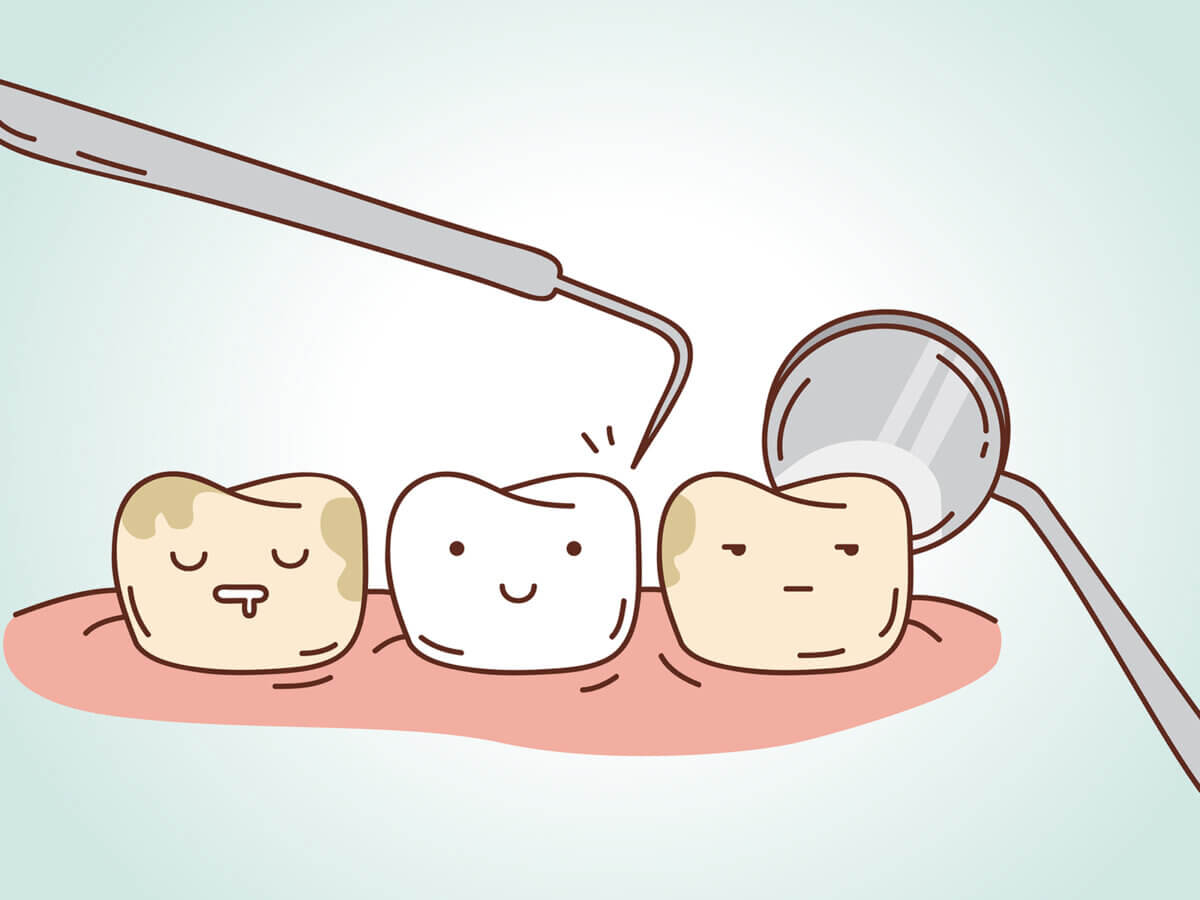Blog
Dental hygiene tips for healthy teeth & gums

Is there any way to restore tooth enamel?
Tooth enamel is a shell-like substance that engulfs the teeth and shields the vulnerable areas inside the teeth. It is a tremendously hard substance, mainly designed to protect our teeth and from damage. However, a worn-out tooth enamel makes it easy for cavities to form and sustain; therefore, safeguarding the enamel is imperative to maintain our overall oral hygiene.
Despite being the hardest substance in the human body, the enamel is prone to chipping, erosion, and cracking. Furthermore, as the enamel is not composed of living cells, it possesses no mechanism of healing and repairing. So, once damaged, there is no way for the body to restore the precious.
What causes enamel to erode?
Some of the primary causes of enamel erosion are:
- Excessive consumption of soft drinks, sodas, and drinks with a high concentration of citric acid and phosphoric acid.
- Harsh brushing of teeth may wear down the enamel.
- Having a dry mouth or low saliva flow can also make the enamel susceptible to erosion.
- Bruxism can also damage the enamel.
- Chewing tobacco is also said to erode the enamel.
Prevention is better than cure – enamel protection
The phrase ‘prevention is better than cure’ is accurate when it comes to enamel protection. It is crucial to protect the enamel, and it is essentially the first step in protecting the teeth from problems like decay, cavities, gingivitis, periodontitis, and so forth. Regular brushing, timely visits to the dentists, mouth rinses, and professional cleanings are ways to take care of the precious enamel. Moreover, it is essential to use mild toothpaste, and a gentle brush as abrasive ingredients and harsh strokes can cause irreparable damage to the enamel. Likewise, using dental products with fluoride is vital to strengthen the precious enamel. Consuming food rich in calcium and vitamin D can also keep our enamel in perfect shape.
Remineralizing the enamel – is it possible?
It is impossible to restore eroded and damaged enamel. But, there are ways to strengthen weakened enamel by the process of remineralization, that is, by improving the enamel’s mineral content.
Tooth bonding is a quick dental procedure that can help in strengthening your weakened enamel. During tooth bonding, a tooth colored composite resin is applied to the decayed or chipped tooth to improve the look of the damaged tooth. But, this process is viable only in cases of mild enamel erosion. In addition, dental crowns and veneers can also be used to conceal enamel damages.
Using a remineralizing toothpaste tube with a suitable concentration of fluoride and minerals can also help in strengthening the enamel.
Eating mineral-rich foods, taking probiotics, and getting enough vitamin D can help in remineralizing the tooth enamel. Probiotics are good bacteria present in the gut that protect the digestive system and reverse tooth remineralization and prevent cavities. They keep the gut healthy, which permits the faultless absorption of nutrients and minerals. Moreover, probiotics decrease the number of bacteria that lead to tooth decay and enamel damage.
Oil pulling, avoiding sugary foods, and getting vitamin K2 are other ways to remineralize the enamel.
Book Appointment to find out which treatment might be best for you.


